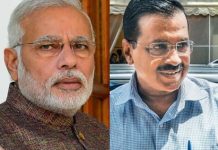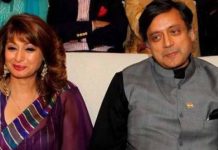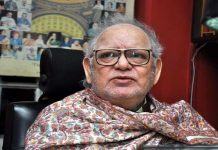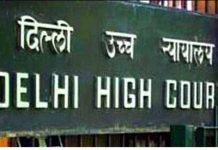The BJP’s humbling experience during the 2024 Lok Sabha polls does not seem to have dampened its spirits as the start of 18th Lok Sabha was marred by hostile exchanges between the government and the Congress over references to the black days of Emergency. A report by Mudit Mathur
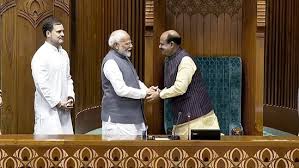
The newly sworn-in coalition government of NDA under the leadership of Prime Minister Narendra Modi has signalled that it will continue to disregard the opposition bloc, mainly the Congress party, in and outside Parliament, though the latter has now acquired good strength in terms of numbers. Modi government 3.0 seems intent on playing on the front foot while dealing with the Congress in the House though the BJP’s seat tally has fallen 32 short of the majority mark in the Lok Sabha polls, whereas the Congress tally has climbed up and has nearly doubled.
The beginning of the 18th Lok Sabha was marred with such acrimonious hostile exchanges by unsolicited references to the black days of democracy during the “Emergency” era, imposed by the Congress party 49 years ago. This virtually compelled both the treasury benches and the Opposition to resume their entrenched positions with the hounding nightmare of the undemocratic mass expulsions they faced as excessive punishment towards the last phase of 17th Lok Sabha. This paved the way to clear many controversial legislations without any debate in both houses of the parliament.
This time, the uproar erupted after Lok Sabha Speaker Om Birla called upon the House to condemn the Emergency imposed by Indira Gandhi and observe its 50th anniversary. “June 25, 1975 will always be known as a ‘black chapter in the history of India’. On this day, then Prime Minister Indira Gandhi imposed an Emergency in the country and attacked the Constitution made by Baba Saheb Ambedkar. India is known all over the world as the mother of democracy,” Birla remarked. Speaker Birla initiated the issue that was followed by PM Modi and even President of India Droupadi Murmu in her joint address to the Parliament mentioned it.
In the first session after the recent Lok Sabha polls, Murmu also invoked the Emergency of 1975, calling it “the biggest and darkest chapter of a direct attack on the Constitution”. This salvo is considered a political reply from team Modi showing a mirror to the INDIA bloc, whose leaders had been displaying copies of the Constitution of India in their hands pledging to protect its values and mandate for governance.
The sudden resolution brought by Speaker Om Birla, attracted strong protest from the Congress party saying that his reference to the Emergency in his acceptance speech on 26 June was “deeply shocking” and “unprecedented.” Congress MP K C Venugopal, General Secretary in charge of the Organisation, wrote to Lok Sabha the next day, “Making of such a political reference from the Chair is unprecedented in the annals of the history of Parliament.”
“I am writing this in the context of a very grave matter impacting upon the very credibility of the institution of Parliament. Yesterday that is 26 June 2024, at the time of offering felicitations on your election as Speaker Lok Sabha, there was a general camaraderie in the House as such occasions generate,” the letter added. “I, on behalf of the Indian National Congress, express our profound concern and anguish over this travesty of Parliamentary traditions,” Venugopal stated.
Rashtriya Swayamsevak Sangh (RSS) chief Mohan Bhagwat after the BJP’s poor showing at the hustings had criticised the practice of attacking each other during election campaigns, the misuse of technology, and the dissemination of false information in obvious reference to an undignified and divisive level of discourse seen during campaigning for Election 2024. Bhagwat advised that the term “virodhi” should be replaced with “pratipaksh.” But within no time, PM Modi forgot the party’s mentor’s solemn advice and as he showed more antagonism for the opposition parties.
PM Modi, in his first speech after the re-election of the Speaker Om Birla, hailed him for running the 17 Lok Sabha with a historic productivity of 97 percent breaking the record of the last 25 years. Congratulating Om Birla, who belongs to the BJP, PM Modi said, “It is a matter of honour that you have been elected to this chair for the second time. The 17th Lok Sabha had entered a golden age of politics under your supervision. We, as a party, are lucky to have you as the Speaker of the House again. Your sweet smile keeps the entire House happy.”
“The previous Lok Sabha passed several path-breaking legislations under your leadership. The works that didn’t happen during 70 years of independence, were made possible by this House under your chairmanship. Several milestones come in the long journey of democracy. A few occasions are such when we receive the opportunity to establish milestones. I am very confident that the country will be proud of the achievements of the 17th Lok Sabha,” Modi remarked in his speech.
Upset over the way the exchange of good gestures had turned sour within no time, the Leader of the Opposition, Rahul Gandhi reacted to the unsolicited political salvo fired on the grand old party and said, “The question is not how efficiently the House is run, the question is how much of India’s voice is being allowed to be heard in this House. So, the idea that you can run the House efficiently by silencing the voice of the Opposition is a non-democratic idea and this election has shown that the people of India expect the Opposition to defend the constitution, the ‘Samvidhan’ of this country. And we are confident that by allowing the Opposition to speak, by allowing us to represent the people of India, you will do your duty of defending the constitution of India.”
Om Birla was elected against the INDIA bloc’s candidate and Congress MP K Suresh with a voice vote. Suresh filed nomination after the BJP failed to concede to the opposition’s demand for the post of Deputy Speaker for him. While congratulating the speaker on behalf of the entire opposition, Rahul Gandhi reminded him “This House represents the voice of India’s people and you are the final arbiter of that voice.”
“The government has political power but the opposition also represents the voice of India’s people and this time, the Opposition represents significantly more voice of the Indian people than it did last time. The Opposition would like to assist you in doing your work. We would like the House to function often and well. Cooperation must happen based on trust. It is very important that the voice of the Opposition is allowed to be represented in this House,” Rahul reiterated.
It is significant to note that during the last 10 years of Modi rule, the opposition parties did not have enough strength of 10 percent to get the position of Leader of the Opposition in the Lok Sabha, but this time people of India substantially voted for INDIA bloc candidates. This happened after the BJP suffered a major setback in the Hindi heartland state of Uttar Pradesh. Remarkably, the BJP lost 83 seats from its 2019 tally. The opposition got a Leader of the Opposition with the Congress winning 99 seats in the recent general elections.
Following a meeting with INDIA bloc leaders at Congress chief Mallikarjun Kharge’s residence, the Congress named senior leader and MP Rahul Gandhi for the post, who accepted the challenges of the post of leader of the opposition. Rahul Gandhi has been seen as a political activist constantly questioning the Modi government on the burning issues of alleged corruption, sale of PSUs, alleged misuse of criminal laws, Agniveer scheme, unprecedented unemployment, farmers’ distress, price rise besides women and Dalit issues, resulting from social discrimination and inequalities. These issues will continue to resonate in the 18th Lok Sabha.
Rahul will have to quickly adapt to his new role and devote much time to parliamentary work. His attendance so far has been very poor during parliamentary sessions but now he will have to devote more time to focus on the floor management which requires a pragmatic approach, better coordination with the government, and leadership skills to take along all its constituent partners.








